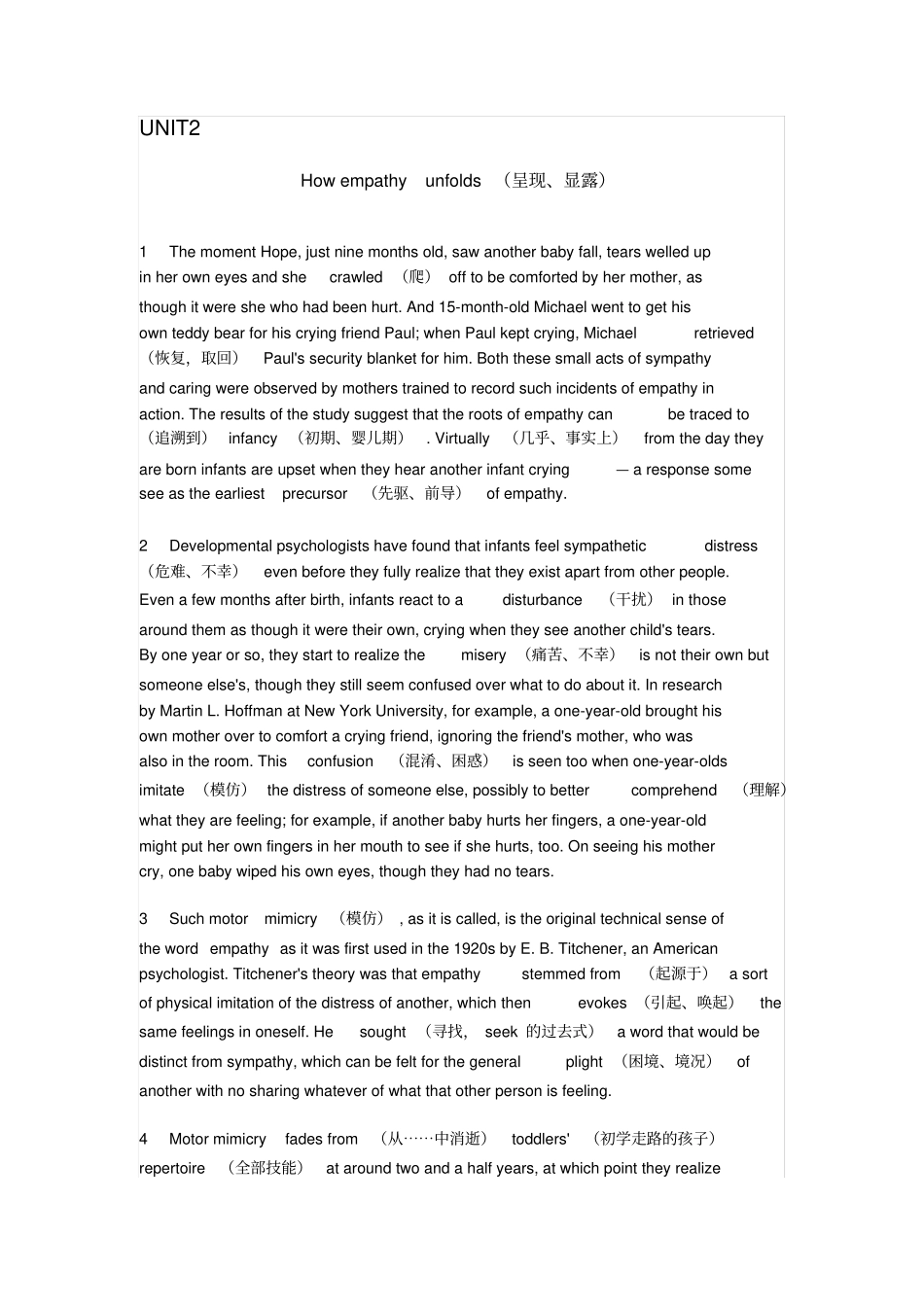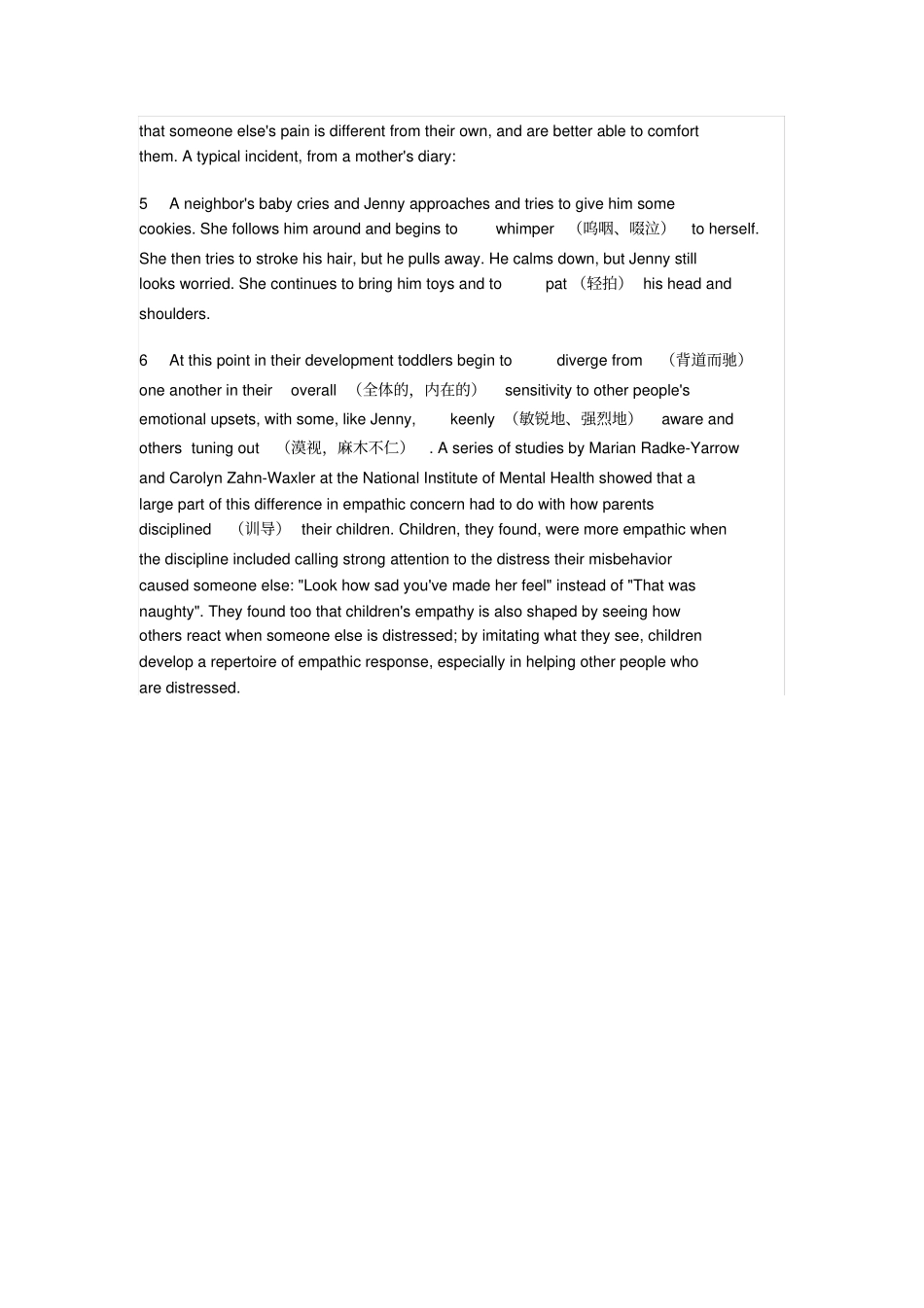UNIT2 How empathy unfolds (呈现、显露)1 The moment Hope, just nine months old, saw another baby fall, tears welled up in her own eyes and she crawled (爬) off to be comforted by her mother, as though it were she who had been hurt. And 15-month-old Michael went to get his own teddy bear for his crying friend Paul; when Paul kept crying, Michael retrieved(恢复,取回) Paul's security blanket for him. Both these small acts of sympathy and caring were observed by mothers trained to record such incidents of empathy in action. The results of the study suggest that the roots of empathy canbe traced to(追溯到) infancy (初期、婴儿期). Virtually(几乎、事实上) from the day they are born infants are upset when they hear another infant crying— a response some see as the earliest precursor(先驱、前导) of empathy. 2 Developmental psychologists have found that infants feel sympathetic distress(危难、不幸)even before they fully realize that they exist apart from other people. Even a few months after birth, infants react to a disturbance(干扰) in those around them as though it were their own, crying when they see another child's tears. By one year or so, they start to realize the misery (痛苦、不幸) is not their own but someone else's, though they still seem confused over what to do about it. In research by Martin L. Hoffman at New York University, for example, a one-year-old brought his own mother over to comfort a crying friend, ignoring the friend's mother, who was also in the room. This confusion(混淆、困惑) is seen too when one-year-olds imitate (模仿) the distress of someone else, possibly to better comprehend(理解)what they are feeling; for example, if another baby hurts her finge...

